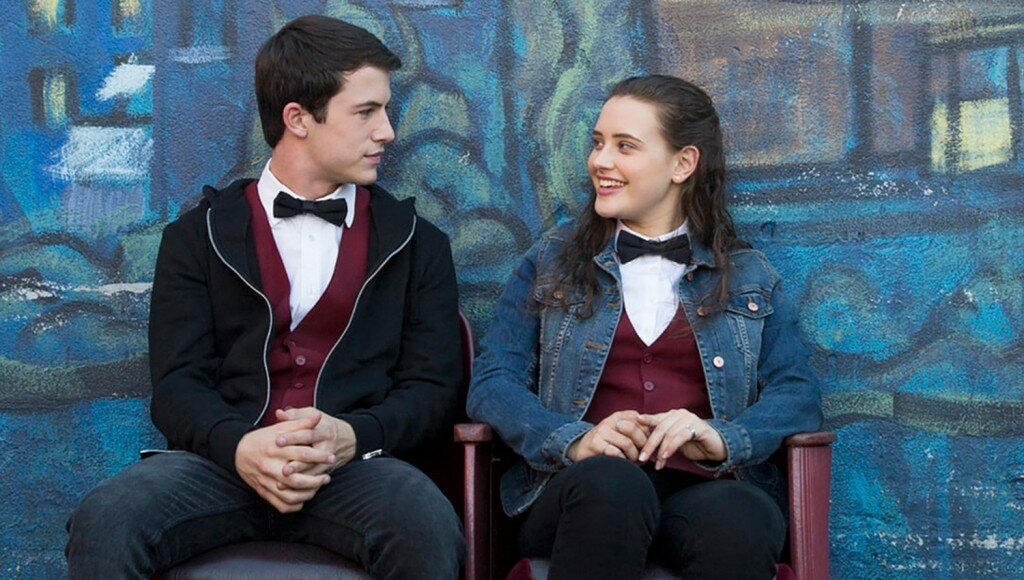Funniest TV Shows Of All Time Ranked
When you think about the funniest TV shows ever, it's easy to find yourself torn between timeless favorites and groundbreaking newcomers. Maybe you find comfort in the everyday quirks of "Seinfeld" or the absurd chaos in "It's Always Sunny in Philadelphia." Still, each show on this list stands out for a reason, whether it's sharp writing, cultural influence, or iconic characters. But which series truly deserves the top spot? Let's take a closer look.
Seinfeld
Seinfeld is a noteworthy sitcom in the history of television, recognized for its influence on the genre. Premiering in 1989 and running until 1998, it's often regarded as a pioneer in its use of observational humor and a departure from traditional sentimental storytelling. The series revolves around the lives of four friends—Jerry, George, Elaine, and Kramer—navigating various social situations in New York City.
Critical analysis of Seinfeld highlights its exploration of the mundane aspects of everyday life, bringing to the forefront humor derived from relatable experiences and social norms.
The show's format, often referred to as "a show about nothing," set a precedent for sitcoms that followed, focusing on character dynamics over conventional plot structures.
The series contributed several catchphrases and memorable lines to popular culture, which have since become embedded in the lexicon. Its impact can be seen in the work of many comedians and television writers who cite Seinfeld as an influence in their own creative endeavors.
As of now, it's frequently ranked among the top comedy series in television history, due to its innovative approach and lasting legacy.
The Simpsons
While Seinfeld is often credited with redefining the live-action sitcom format, The Simpsons has played a significant role in advancing animated comedy since its premiere in 1989. The show utilizes satire to comment on various aspects of American life through the experiences of the Simpson family, which includes characters such as Homer, Marge, Bart, Lisa, and Maggie.
The influence of The Simpsons is notable; phrases like "D’oh!" have entered popular culture, and the series has received more than 30 Primetime Emmy Awards for its writing and overall presentation.
Each season introduces a breadth of supporting characters and thematic elements, contributing to the show's longevity and relevance.
In addition to television, The Simpsons has extended its reach into films, video games, and an array of merchandise, establishing it as a significant entity in the realm of entertainment.
The series incorporates sharp humor and cultural commentary, making it a critical part of any analysis of modern comedic works in both animated and live-action formats.
The Office
*The Office* is a mockumentary-style sitcom that depicts the everyday operations of the Dunder Mifflin paper company.
It's notable for its unique format, which blends traditional sitcom elements with a documentary approach, allowing for direct address to the camera and a more intimate portrayal of character dynamics.
The humor often arises from relatable and awkward situations faced by employees, alongside the idiosyncratic behavior of its characters, particularly Michael Scott, played by Steve Carell.
The show employs a form of dark comedy, frequently incorporating cringe-worthy humor that can create discomfort yet elicits laughter. One recurring phrase, "That's what she said," has transcended the show itself to become a part of popular culture.
With an IMDb rating of 8.8/10, The Office has garnered a significant following and is often cited as one of the standout comedies of its era.
Its lasting impact on comedy is evidenced by numerous accolades and a continued presence in discussions about influential television series.
Chappelle’s Show
Comedy clubs experienced a notable shift following the debut of Chappelle’s Show on Comedy Central in 2003.
The show, created by Dave Chappelle and Neal Brennan, distinguished itself with its exploration of social issues, particularly race, identity, and politics, delivered through a series of sketches. Some sketches, such as "Clayton Bigsby" and "Charlie Murphy’s True Hollywood Stories," highlighted its ability to combine humor with insightful commentary on societal themes.
Despite its conclusion after only three seasons, Chappelle’s Show significantly influenced American culture and comedy.
The show's approach to addressing complex topics through satire garnered critical acclaim, leading to multiple Emmy nominations. Its memorable lines and concepts continue to resonate, indicating the lasting impact on both audiences and the broader landscape of television comedy.
It’s Always Sunny in Philadelphia
Following the impactful legacy of Chappelle’s Show, It’s Always Sunny in Philadelphia continues to challenge conventions within the television comedy genre. Set in the fictional Paddy’s Pub, the series features a group of five characters—Charlie Day, Glenn Howerton, Rob McElhenney, Kaitlin Olsen, and Danny DeVito—who engage in a variety of ethically questionable schemes.
The show is noted for its incorporation of dark humor and satire, effectively addressing social and moral issues while subverting traditional sitcom expectations.
Having aired for sixteen seasons, It’s Always Sunny in Philadelphia demonstrates a consistent commitment to exploring complex themes through comedy. Its characters often exhibit self-serving behaviors, which allows the show to engage in commentary on societal norms and taboos.
The ensemble cast contributes to a dynamic interplay of absurd situations that provoke thought and discussion among viewers.
Overall, It’s Always Sunny in Philadelphia represents a significant contribution to modern television comedy, utilizing its unique narrative style to critique various aspects of contemporary life.
This long-running series highlights the potential of humor as a means of engaging with serious subjects while maintaining audience interest.
30 Rock
*30 Rock* is notable for its sharp, self-referential humor and its unique approach to television comedy. Over its seven seasons, the series developed a distinctive comedic style that effectively parodied pop culture, media politics, and the intricacies of network television.
Created by Tina Fey, the show is characterized by its fast-paced dialogue and multilayered jokes, a hallmark of Fey's writing. The performances of actors such as Alec Baldwin and Tracy Morgan further contributed to the show's critical acclaim.
The series doesn't simply critique the entertainment industry; it also highlights its eccentricities. By employing a satirical lens, 30 Rock offers a commentary on the absurdity of the Hollywood milieu while engaging viewers with its witty storytelling.
The show's structure often includes self-referential elements that provide insight into the nature of television production, making it not only entertaining but also a reflection of the industry's realities. Overall, 30 Rock stands out as a significant work in the realm of comedic television for its intelligent humor and cultural commentary.
South Park
If 30 Rock excels at witty, behind-the-scenes satire, South Park approaches controversial topics with a direct and often confrontational style. The show has gained prominence for its critical examination of social and political issues through satire. Created by Trey Parker and Matt Stone, South Park has been a notable presence in television since its debut in 1997 and has received multiple Emmy Awards for its work.
South Park is recognized for its unique animation style, which resembles cutout figures, and for its memorable characters, including Eric Cartman and Stan Marsh.
The show's writing often features sharp dialogue that contributes to its comedic impact. Its thematic content frequently tackles timely subjects and societal norms, making it a significant cultural artifact of its time.
As such, South Park is regarded as an important series for those interested in the intersection of comedy and social commentary.
Curb Your Enthusiasm
"Curb Your Enthusiasm" distinguishes itself in the comedy genre through its use of improvisation and keen observational humor. Larry David effectively highlights the absurdities of daily life, transforming social faux pas into comedic scenarios.
The show's format allows for spontaneous moments and authentic interactions, contributing to its unpredictable narrative. Additionally, the inclusion of guest stars such as Jerry Seinfeld and Kristen Wiig adds diversity to the show’s comedic landscape.
"Curb Your Enthusiasm" is noted for its ability to blend discomfort with humor, which sets it apart as one of the notable comedies in television history. This unique approach contributes to its critical acclaim and continued relevance in the comedy genre.
Key & Peele
*Key & Peele* is a notable sketch comedy series that premiered in 2012, created by comedians Keegan-Michael Key and Jordan Peele. The series is recognized for its incisive commentary on social issues, particularly those relating to race, culture, and identity. Through cleverly crafted sketches and parodies, Key and Peele address complex themes in a manner that resonates with a wide audience.
The chemistry between the two leads is a significant factor in the show's success, with memorable sketches such as “Substitute Teacher” and “Luther, Obama’s Anger Translator” contributing to its popularity. These sketches exemplify their ability to blend humor with poignant social commentary, which has garnered them substantial viewership and critical acclaim.
Over its five-season run, the series received five Primetime Emmy Awards, reflecting its impact on the sketch comedy genre.
*Key & Peele* has effectively redefined expectations for television comedy, pushing boundaries while maintaining a focus on relevant societal issues. This combination of humor and commentary positions the show as a significant work within the landscape of contemporary sketch comedy.
Saturday Night Live
*Saturday Night Live* is a significant entity in American comedy, having first aired in 1975. The program is renowned for its blend of sketch comedy, live musical performances, and guest hosts from various fields, including film, music, and politics. Its structure typically includes a cold open, a monologue, and a series of topical sketches, which allows it to address current events and cultural phenomena effectively.
The show's impact on the comedy landscape is notable, as it has been instrumental in launching the careers of numerous comedians such as Eddie Murphy and Tina Fey, among others. With a record of over 70 Emmy Awards, Saturday Night Live has established itself as a key player in the realm of late-night television.
The ability of SNL to adapt its content to reflect contemporary issues in society, particularly through satire and parody, contributes to its ongoing relevance.
The show's format encourages a rapid response to political and social changes, offering insights and critique that resonate with its audience. Therefore, Saturday Night Live remains an important cultural institution in both entertainment and socio-political commentary.
Conclusion
When you’re looking for the funniest TV shows of all time, you can’t go wrong with the legends on this list. Each one delivers a unique brand of comedy that’s kept audiences laughing for years. Whether you love witty dialogue, outrageous characters, or sharp satire, you’ll find shows that’ll keep you coming back for more. So grab some popcorn, hit play, and get ready to watch—and rewatch—the shows that redefined what comedy can be.


































Suivez les Cinévores